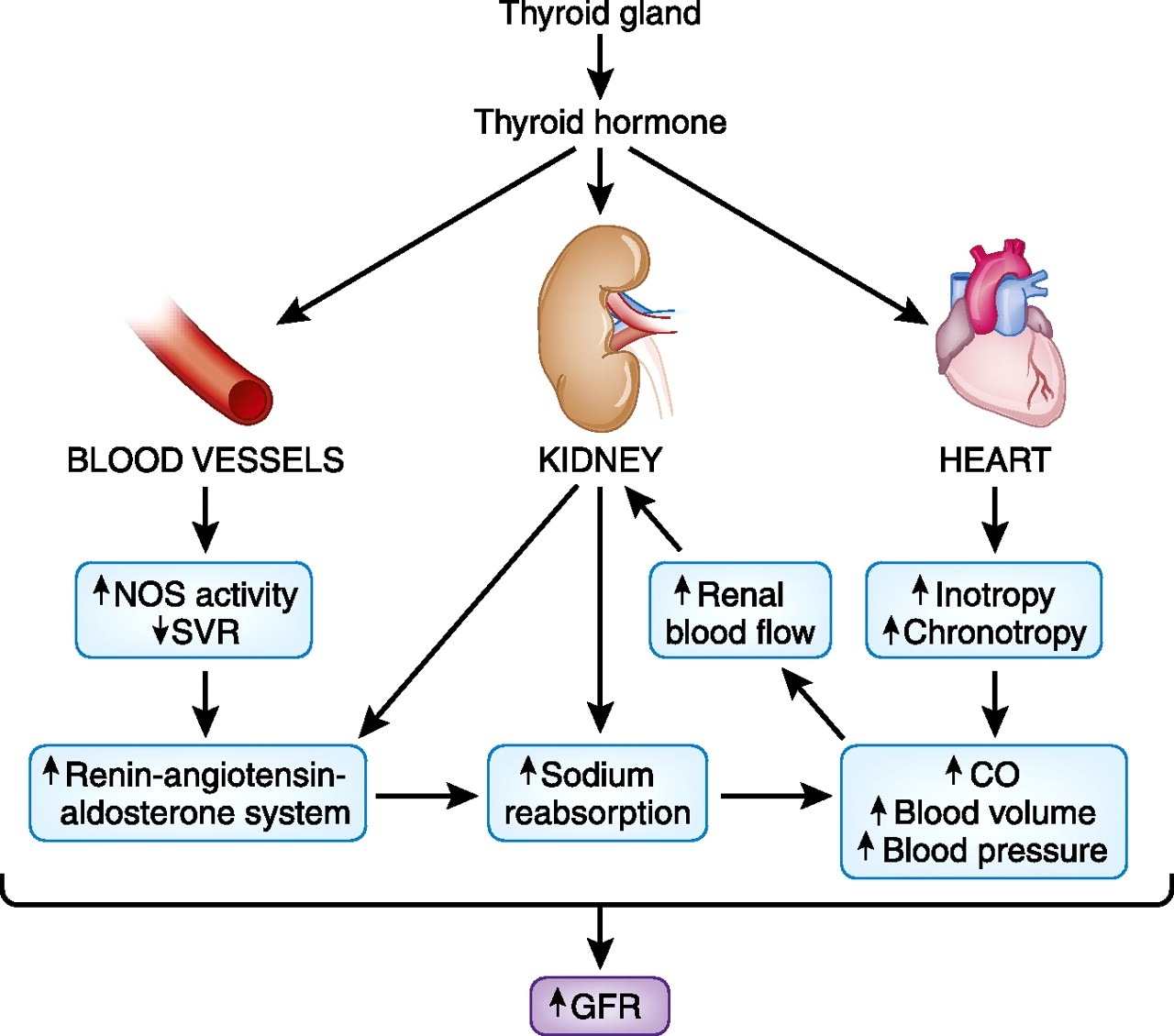The Thyroid & Arrhythmia (atrial fibrillation) Connection
Is your thyroid hormone causing cardiovascular side effects?
By Diana M Drake - November 3, 2020
Hypothyroidism: The cardiac connection
Hypothyroidism can affect the heart and circulatory system in a number of ways. Insufficient thyroid hormone slows your heart rate. Because it also makes the arteries less elastic, blood pressure rises in order to circulate blood around the body. Elevated cholesterol levels, which contribute to narrowed, hardened arteries, are another possible consequence of low thyroid levels.
Another noncardiac symptom—muscle aches—may also be relevant. Muscle aches can be a symptom of hypothyroidism as well as a side effect of cholesterol-lowering statin medications, a condition known as statin-related myalgia. In fact, research suggests that hypothyroidism is more common in people who can't tolerate statins. "Some experts believe that treating hypothyroidism may relieve or decrease statin-related myalgia," says Dr. Garber. (Harvard Medical School)
Hyperthyroidism: Excess thyroid hormone
The opposite problem, hyperthyroidism, or too much thyroid hormone, is far less common, affecting less than 1% of the population. But it, too, can harm the heart.
The classic symptoms include sleeplessness, heat intolerance, excess sweating, weight loss, extreme hunger, and loose bowels. Excess thyroid hormone also causes the heart to beat harder and faster and may trigger abnormal heart rhythms. One is atrial fibrillation, a disorganized rhythm in the heart's upper chambers. A related symptom is palpitations, a sudden awareness of your heartbeat. People with hyperthyroidism may also have high blood pressure. In a person with clogged, stiff heart arteries, the combination of a forceful heartbeat and elevated blood pressure may lead to chest pain or angina.
Diana M Drake, Clinical Naturopath specializes in balancing the thyroid and endocrine system without the use of prescription drugs but rather homeopathic and herbal plant medicine. The first step in the process is to figure out the CAUSE of imbalance in the endocrine system through a series of blood and saliva hormone tests. During this process, if other imbalances are expressing - for example in the cardiovascular system - this area can also be addressed using natural medicine. The goal is to create a homeostatic environment where all systems are in balance with one another and functioning optimally. As the cause of the issue begins to resolve, the symptom (dis-ease) should thereby be eliminated. Programs are available in person and via phone or video chat for anyone in the United States.
Based on the original article: https://www.health.harvard.edu/heart-health/thyroid-hormone-how-it-affects-your-heart
Tags: holistic medicine, hypothyroid, hyperthyroid, afib, arrhythmia, naturopathic medicine, natural medicine, alternative to drugs, cardiovascular disease, high cholesterol, high blood pressure, thyroid symptoms, hot flashes, thyroid and heart, thyroid and arrhythmia, what causes afib, what causes arrhythmia, natural remedies for afib, natural cure for arrythmia, fix my thyroid
*The above tags are used for search engines only and are not intended to represent that this practice, articule or information claims to cure, prevent or treat any disease nor takes the place of the medical advise of a licensed medical professional.
